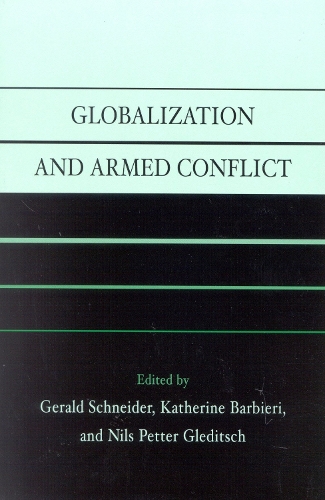
Globalization and Armed Conflict
(Paperback)
Publishing Details
Globalization and Armed Conflict
By (Author) Gerald Schneider
Edited by Katherine Barbieri
Edited by Nils Petter Gleditsch
Contributions by Charles H. Anderton
Contributions by Katherine Barbieri
Contributions by Nathaniel Beck
Contributions by John R. Carter
Contributions by Han Dorussen
Contributions by Erik Gartzke
Contributions by Ranveig Gissinger
Bloomsbury Publishing PLC
Rowman & Littlefield Publishers
11th June 2003
United States
Classifications
Tertiary Education
Non Fiction
Globalization
Warfare and defence
327
Physical Properties
Paperback
384
Width 146mm, Height 229mm, Spine 21mm
494g
Description
Globalization and Armed Conflict addresses one of the most important and controversial issues of our time: Does global economic integration foster or suppress violent disputes within and among states Here, cutting-edge research by leading figures in international relations shows that expanding commercial ties between states pacifies some, but not necessarily all, political relationships. The authors demonstrate that the pacific effect of economic integration hinges on democratic structures, the size of the global system, the nature of the trade goods, and a reduced influence of the military on political decisions. In sum, this book demonstrates how important the still fragile capitalist peace is.
Reviews
...This volume is an important compilation of studies and contributes to our understanding of economic interdependence and conflict. * Journal of Peace Research *
A splendid overview for anyone wishing to get a thorough introduction to the major issues involved in assessing the liberal peace hypothesis. * International Studies Review *
Author Bio
Gerald Schneider is Professor Of Political Science at the University of Konstanz. Katherine Barbieri is Assistant Professor Of Political Science at Vanderbilt University. Nils Petter Gleditsch is Senior Research Fellow at the International Peace Research Institute, Oslo.
